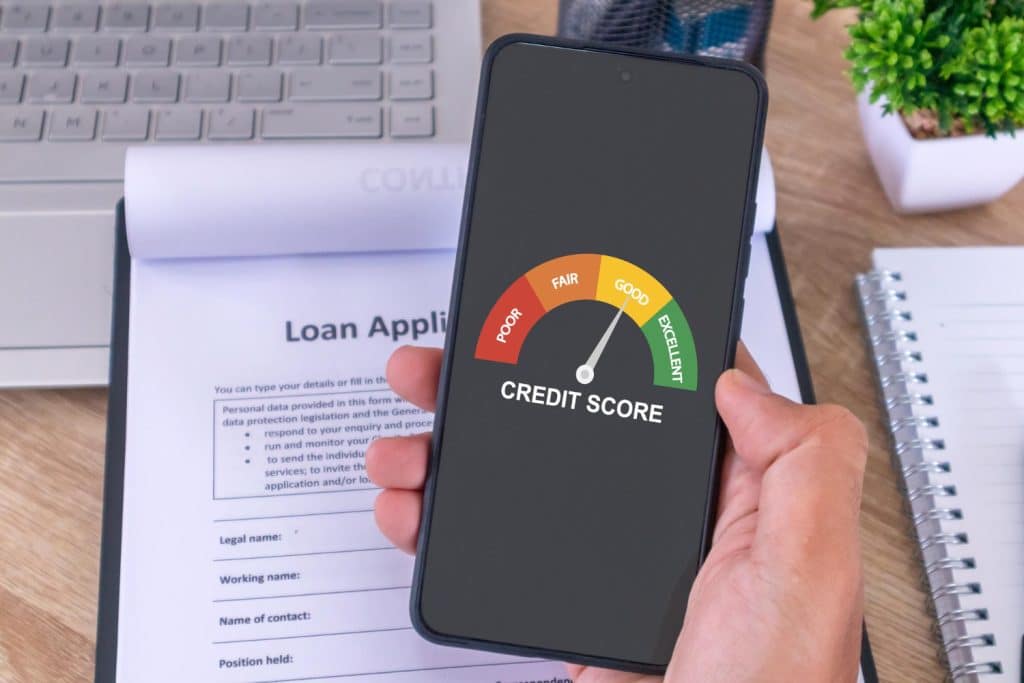How to Build Credit: Plan and Achieve Your Financial Goals

Anúncios
Knowing how to build credit is crucial to achieving any of your financial goals in the United States. To buy a house, rent an apartment, or get a good credit card, a solid credit history is essential.
Navigating the complexities of credit scores and financial reports can seem daunting, but fear not! We’ve curated a comprehensive content packed with practical and effective strategies to help you build a strong credit foundation.
From mastering the art of timely payments to smart financial habits that boost your credit score, we’re here to guide you through each step.
Anúncios
Ready to transform your credit status and unlock new financial possibilities? Let’s embark on this journey to a healthier financial future together!
Understand the Importance of Building Credit
Before we dive into practical tips, it’s necessary to understand why building credit is so important. A good credit history opens doors to various opportunities, such as:
- Loan Approval: Good credit increases your chances of approval for car loans, mortgages, and other types of credit;
- Better Interest Rates: With solid credit, you’ll have access to lower interest rates, saving money in the long run;
- Rental Properties: Many landlords check the credit history of tenants before approving a lease;
- Credit Cards with Benefits: Good credit allows you to obtain credit cards with better rewards and benefits;
- Employment Opportunities: Some employers check candidates’ credit histories as part of the selection process.
Tips on How to Build Credit
Now that you understand the importance of credit, let’s explore some practical tips on how to effectively build credit.
Anúncios
Get a Credit Card
Obtaining a credit card is often the first and most straightforward step in building a credit history. To use it effectively, start with small purchases that you can pay off in full each month.
This demonstrates responsible credit behavior and helps avoid costly interest charges. For those new to credit, a starter or secured credit card is an excellent option.
Secured cards, backed by a cash deposit that serves as your credit limit, reduce the issuer’s risk and can be easier to obtain when you lack credit history.
Become an Authorized User
Being added as an authorized user to a family member or friend’s credit card can be a strategic move in building your credit.
This arrangement allows you to benefit from the primary cardholder’s credit habits.
It’s essential, however, to ensure that the primary cardholder has a history of responsible usage and on-time payments, as any negative behaviors can adversely affect your credit score as well.
Obtain a Loan
Taking out a loan and consistently making on-time payments can significantly enhance your credit score.
Whether it’s a personal loan or a car loan, the key is ensuring that the lender reports your activity to the credit bureaus.
This type of installment debt contributes to a good mix of credit types, showing that you can manage different forms of credit responsibly.
Have a Co-signer
If obtaining a loan or credit card is challenging due to your credit history, consider asking someone with a strong credit score to co-sign the credit agreement.
A co-signer can provide the assurance lenders need to approve your application.
However, it’s important to recognize the financial responsibility this places on the co-signer; they will be liable for any debts if you are unable to make payments, potentially risking their credit score and financial stability.
Make Good Credit Mixes
Credit scoring models favor a diverse mix of credit types.
By managing a combination of revolving credit (like credit cards) and installment loans (such as auto, personal, or student loans) effectively, you show that you can handle various credit responsibilities.
This diversity can positively impact your credit score, as it demonstrates comprehensive credit management skills.
Maintain a Low Credit Utilization Rate
Your credit utilization rate — the ratio of your credit card balances to your credit limits — should be kept below 30%.
This percentage is crucial because it accounts for a significant portion of your credit score.
High utilization can signal to creditors that you’re overextended and potentially financially unstable, which can hurt your credit rating.
Make Your Payments on Time
Perhaps the most critical factor in credit management is the timeliness of your payments. Paying your credit card bills, loans, and other financial commitments on time is imperative.
Late payments can severely damage your credit score and remain on your credit report for up to seven years, underscoring the importance of setting reminders or automating payments to ensure punctuality.
By following these guidelines, you can build and maintain a robust credit profile that will facilitate your financial goals now and in the future.
How Long Does It Take to Build Credit?
The speed at which you can build credit quickly varies depending on several factors, such as your current credit history and your financial practices.
In general, it takes three to six months to start seeing significant improvements in your credit history. But building excellent credit can take years of practice and discipline.
Several factors can influence how quickly you can improve your credit score:
- Initial Credit Status: Starting with a lower score might require more time to rehabilitate your credit standing than starting closer to the average range.
- Frequency of Credit Activity: Regular use of credit, along with prompt payments, helps demonstrate creditworthiness more quickly.
- Negative Marks: Late payments, high credit utilization, and collections can severely impact your score, and recovery from these takes longer.
- Age of Credit: Older credit accounts contribute positively to your credit score because they demonstrate a longer history of managing credit.
Building credit is not a one-time event but a continuous process. Even after achieving a good credit score, you must continue practicing good credit habits to maintain it and avoid declines.
Regular monitoring of your credit report is also advisable to ensure all information is accurate and to address any discrepancies promptly.
In conclusion, while the initial steps to establishing credit can be relatively quick, fostering a high credit score is a gradual process that rewards careful, consistent financial stewardship.
By adhering to sound credit practices and staying informed about your credit status, you are well on your way to building and maintaining excellent credit.
Continue browsing our site and discover how to break out of a debt cycle!





